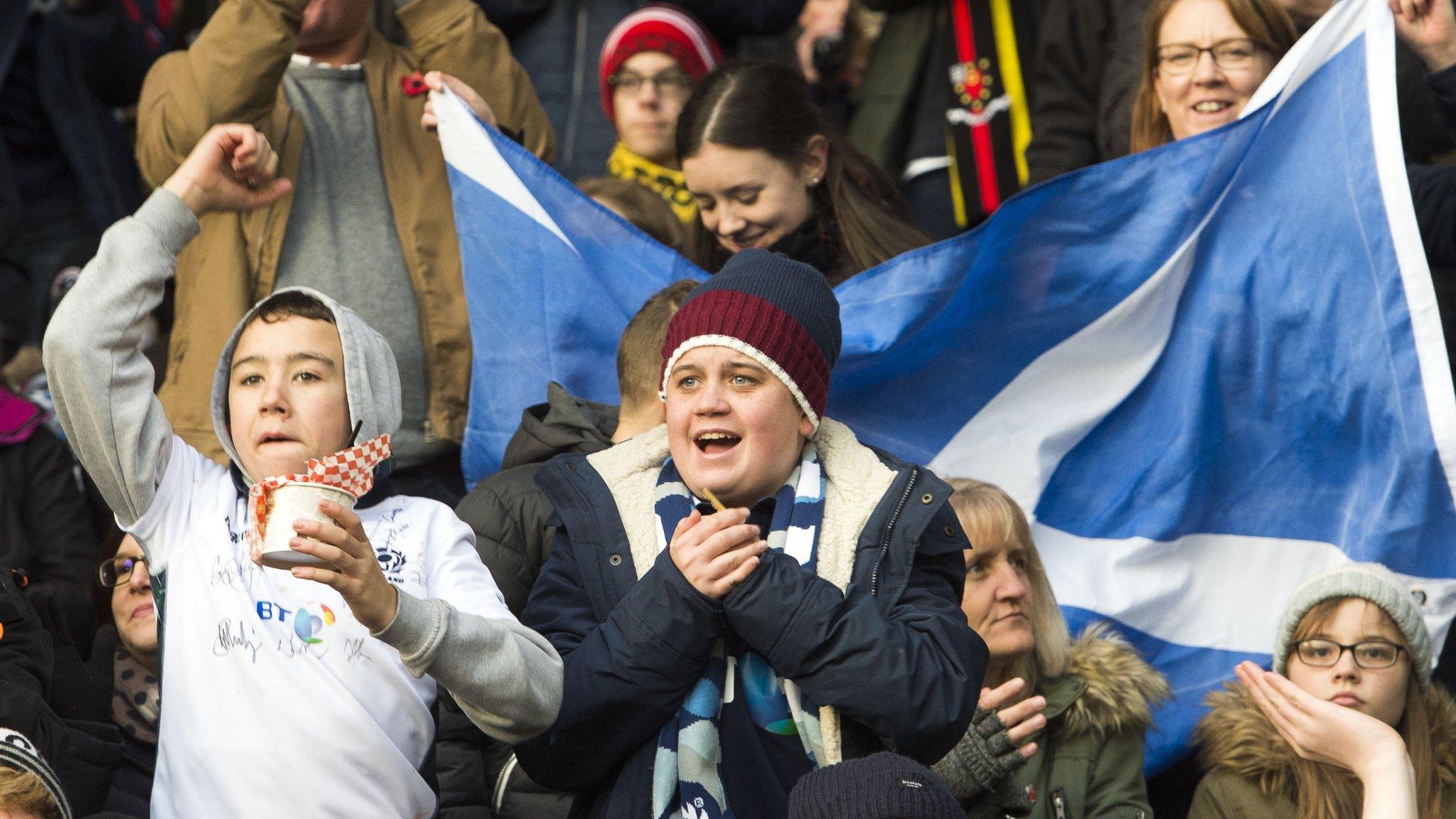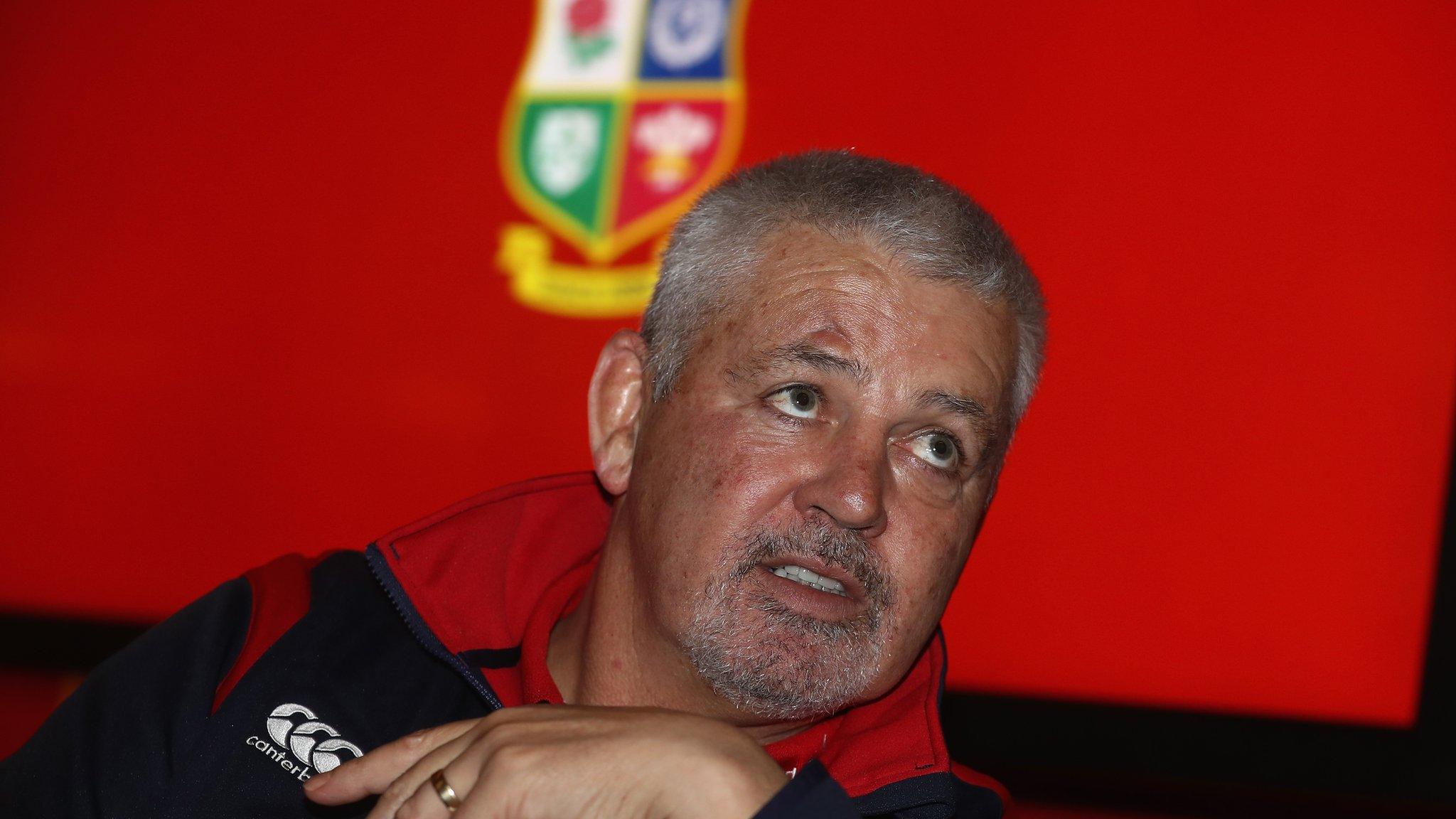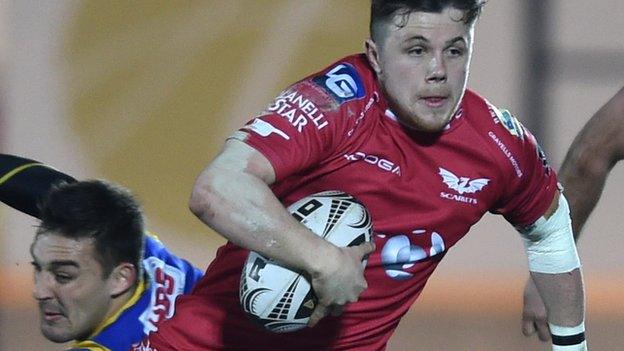Six Nations 2017: Wales' Luke Charteris back in training
- Published

Luke Charteris made his Wales debut against South Africa in 2004
Six Nations: Scotland v Wales |
|---|
Venue: Murrayfield, Edinburgh Date: Saturday, 25 February Kick-off: 14:25 GMT |
Coverage: Live on BBC One Wales, S4C, BBC Radio Wales, BBC Radio Cymru & BBC Sport website and BBC Sport app, plus live text commentary |
Wales lock Luke Charteris is back in training as he recovers from a hand injury which has kept him out of the 2017 Six Nations so far.
The 33-year-old Bath forward missed Wales' 33-7 win over Italy and the 21-16 defeat by England.
Forwards coach Robin McBryde said Charteris is keen to play against Scotland on 25 February.
"If you ask Luke, he'll be fit to play. I'm not sure about the medics yet," said the former Wales hooker.
"He's back up and running, he's done a bit of passing today albeit with a bit of protection on his hand.
"Everything is going in the right direction and it's just step by step with Luke again with regards to how that increases his load.
Six Nations 2017: Back row selection 'nice headache' for Wales, says McBryde
"He's had a little bit of extra time to heal his hand because he picked up a hamstring injury."
The 71-times capped Charteris played in three of the November Test matches, but Scarlets second row Jake Ball has stepped up in his absence.
Wales have also been without Ospreys lock Bradley Davies since the defeat by Australia on 5 November.
Tough analysis
McBryde said the Wales squad had gone through a tough analysis session following their narrow defeat by England, but were keen not to forget some of the positives from the performance.
Wales led until the 77th minute when Elliott Daly's try edged the defending champions ahead.
"We were playing against a team ranked second in the world and for 65 minutes we more than matched them," he said.
"The disappointing thing is obviously the 15 minutes and - typically Welsh - you tend to focus on what went wrong.
"There were occasions when we had the ball and in control, and we could control where the game was going. It was those we focussed on for our learning and how we can improve if we find ourselves in that situation again.
"You can perhaps focus too much on what went wrong and forget the good stuff.
"It's important we retain a lot of the stuff there and focus on those instances."
- Published16 February 2017

- Published16 February 2017

- Published16 February 2017

- Published17 February 2017
